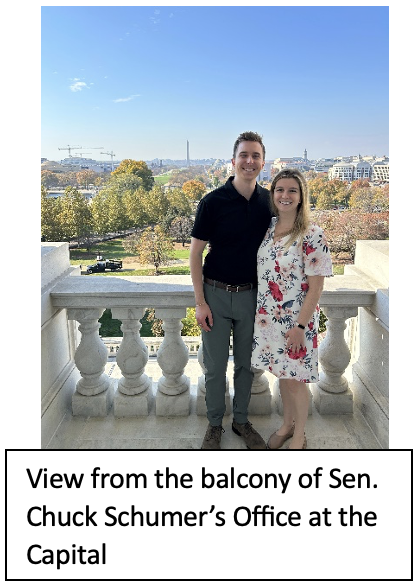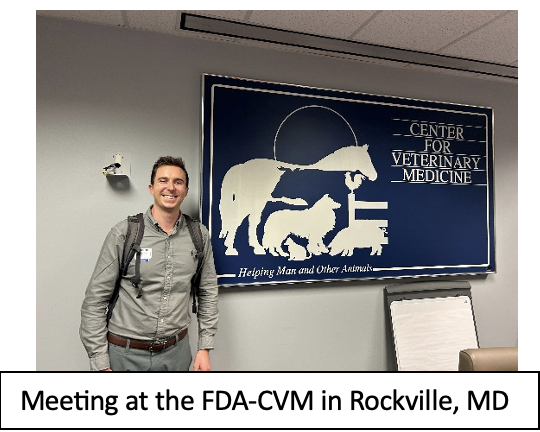EXTERNs ON THE HILL
 Wednesday, April 24, 2024 at 12:00PM
Wednesday, April 24, 2024 at 12:00PM Submitted by Megan Lacy, Virginia-Maryland College of Veterinary Medicine
As I wandered through the maze of the Longworth House Office Building in Washington, DC seeking out the coffee shop that I used to frequent a mere four years ago in my former career, I swiftly realized that while the layout of Capitol Hill had not changed, I had changed drastically throughout my four years in veterinary school back home in Southwest Virginia. Now, as an American Veterinary Medical Association (AVMA) Government Relations Division (GRD) extern, I enter U.S. House and Senate Office Buildings to advocate for legislation on behalf of the veterinary medical field as a soon-to-be doctor with a scientific outlook on public policy. Though I have different priorities now, I have noticed two common threads throughout my education and career: the importance of perspective and the value of relationships, both of which have been put to extensive use during my first two weeks as an extern.
My perspective is likely quite different from those who typically work on Capitol Hill, which allows me to speak personally about issues that are imperative to the veterinary profession. A top legislative priority for the AVMA is to secure proper funding for the Veterinary Medicine Loan Repayment Program (VMLRP) and the Veterinary Service Grant Program (VSGP), both of which address rural veterinary shortages across the country. Growing up in rural Southwest Virginia, I have witnessed the decline in the number of large animal veterinarians and their practices and the impact this has had on herd health and the economic vitality of local farms. As an extern, I have realized the effect both programs have had on rural communities and the exceptional programs these funds are used to support. I have never felt prouder to be a member of the veterinary field and to come from a rural community.
Through that community, I have learned to consider different perspectives, but I have also learned the value of relationships. Coming from a close-knit community drove home the importance of connections with other members of the community at an early age. Although I wasn’t aware of it then, I was honing a skill that would serve me greatly in my eventual career. In my previous career as a liaison between different entities at the House of Representatives, relationship-building and finding common ground were vital to my career. These skills are, of course, also essential for veterinary students and veterinarians. As an extern, I have been able to meet with congressional staff, representatives and senators, former coworkers, and amazing veterinarians involved in policy and government. The experience thus far has been enriching and fun and has allowed me to marry different experiences and skills that I have gained over the years – it has somewhat felt like home.
After I finally found my coffee in Longworth, I headed toward another meeting in which I would meet someone new, find common ground, and share my perspective on the importance of the veterinary profession and the legislation that will continue to support and advance it.
 AVMA,
AVMA,  Externs on the Hill in
Externs on the Hill in  Externs on The Hill
Externs on The Hill 


